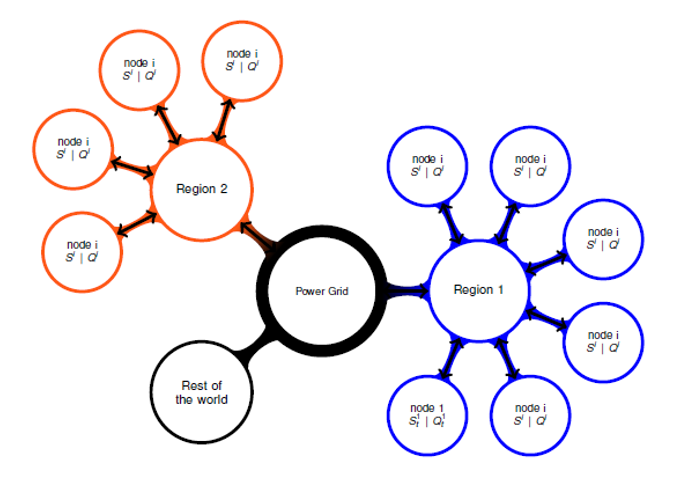ANR PROJECT CAESARS
The project Caesars granted by the Agence Nationale de la Recherche for years 2016-2018 aims at fullfiling four primary tasks, that is
A few examples concerning electrical systems that involve developements of the above tasks are:
• Optimal management under uncertainty of microgrid equipped with PV panels
and battery:
We describe the mathematical modeling and the
numerical resolution of the optimal management of the electricity
consumption of a building equipped with solar panels and battery.
The storage facilities help to smooth the load on the public grid.
We address the question of how to use optimally the battery in order
to minimize the variance of power taken from the public grid. We also account
for the aging of the battery by penalizing in our optimisation criterion the
charge/discharge of the battery. We additionally expect that the State Of Charge
of the battery remains close to a medium value. This is a new type of stochastic
control problem since we need to account for the probability distribution of the
system (here the variance). We have tackled this problem by designing and solving a
new type of stochastic equation called McKean Forward Backward Stochastic Differential
Equations. Joint work by Emmanuel Gobet and Maxime Grangereau.


• Grid With Distributed generation and storage:
We consider a stylized model for a power system with distributed
local energy generation and storage. This system is modeled as a
grid connecting a large number of nodes, where each node is
characterized by a local electricity consumption, has a local
electricity production (e.g. photovoltaic panels), and manages a
local storage device. Depending on its instantaneous consumption and
production rates as well as its storage management decision, each
node may either buy or sell electricity, impacting the electricity
spot price. The objective at each node is to minimize energy and storage
costs by optimally controlling the storage device. In a non-cooperative
game setting, we are led to the analysis of a non-zero sum stochastic game
with $N$ players where the interaction takes place through the spot price
mechanism. For an infinite number of agents, our model corresponds to an
Extended Mean-Field Game (EMFG). In a linear quadratic setting, we obtain and
explicit solution to the EMFG, we show that it provides an approximate
Nash-equilibrium for $N$-player game, and we are able to compare this solution
to the optimal strategy of a central planner.
